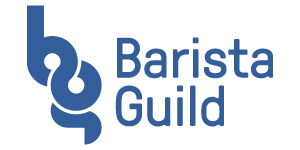A Peek Into The Bloom 2020 Germany Event
By Richard Stiller
Bloom Germany was the kick-off event for the 2020 Bloom series — four localized events taking place in the month of October.
For the German event, there were two presentations and a panel discussion. You can find the recorded talks (all in German) here.
Credit where credit is due: 20-30% of coffee farms are female-owned
Opening the vent was Simone König of Café Imports Europe with a presentation on female cooperatives in coffee-producing regions. In particular, Simone focused on the AMACA (Asociacion De Mujeres Productoras Agropecuarias Del Cauca) cooperative in Colombia, pointing out that about 20-30% of coffee farms are female-owned. At the same time, there are very few female farmer names in specialty coffee and micro-lots. Additionally, around 70% of manual labor in coffee at origin is carried out by women. All of this without the majority of women being recognized in the value chain.
Through addressing this gender disparity, female cooperatives support women working in coffee and assist them in moving towards a more central position in coffee-producing countries. Simone took our Bloom participants through a virtual tour of one of the farms of AMACA and how the women grow, harvest, process, and improve the quality of their coffees. Wrapping up her presentation, she pointed towards the International Women's Coffee Alliance (www.womenincoffee.org/) as a global organization focusing on women in coffee.
"Do you know who picks your coffee?"
Second, Nikolai Fürst of Desarrolladores de Café joined from Colombia to give insights into the current situation in light of COVID-19 in a coffee-producing country. He explained how Colombia reacted with a rapid quarantine to stop the spread of COVID-19 and secure the harvest of coffee. Next, he talked about finding the right price and what coffee actually costs to produce, including showing a very detailed price breakdown (13:40min in his presentation) for the Capilla de Rosario farm (owned by Jose Posada) close to Medellin. Nikolai compared and contrasted his own calculations (higher) to those of the FNC (lower) to an interesting effect, and concluded his talk with a price break down of 70kg of coffee in Germany (16:15min). His main question from the presentation was, "Do you know who picks your coffee?" Highlighting the different people, skills, and tasks needed to bring specialty coffee from the tree to the cup.
What is a welcoming environment? Inclusion and Diversity in Specialty
The event’s final discussion was a panel on the topic "Diversity and Inclusion within the German Coffee/Gastronomic Scene." Wissem Ben Rahim (of Ben Rahim), Peter Duran (Isla Coffee Roasters), and Sophie Schackmann (Five Elephant Roastery) joined me, Richard Stiller (SCA), on an interesting exploration of the topic.
Through the discussion of different cultures within companies and cultures around drinking coffee (especially unique German coffee culture), the discussion evolved mainly around diversity and inclusion of various consumers and their habits. For example, how can the coffee scene be more open to elder people who tend to not go into specialty shops? How can the coffee scene be more welcoming to people with different coffee preparing and drinking rituals? The answers and ideas vary from participant to participant, starting with creating a welcoming environment, to offering sugar and milk, all while taking customers along the journey to enjoy specialty coffee pure.
There are a lot of different variables, and it's impossible to bring this discussion to definitive conclusion. What we do know is that people are curious about specialty coffee, many are interested in trying something new, and coffee has been and continues to be an integral part of many people's daily lives and rituals.




